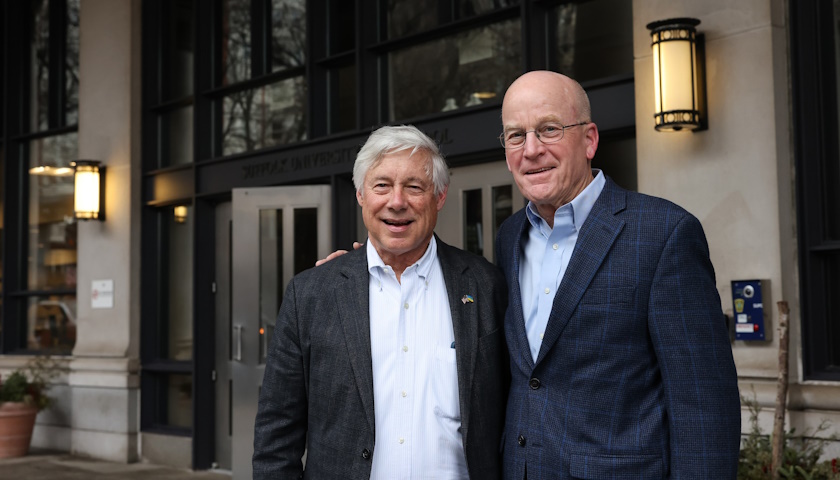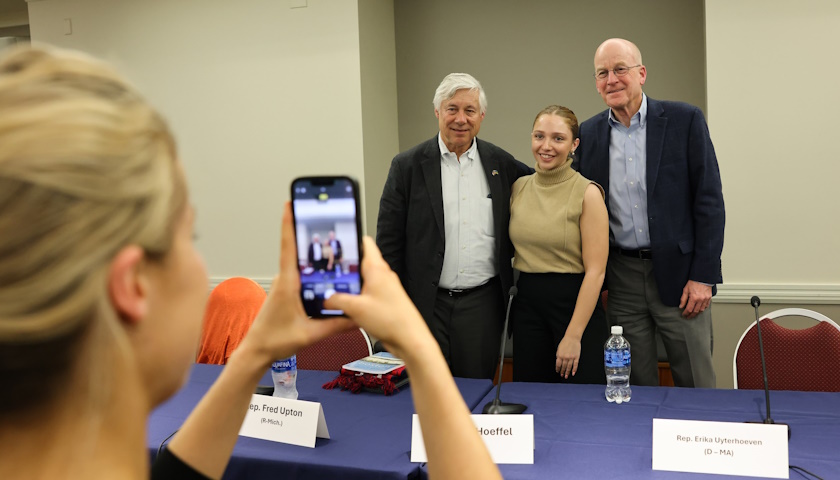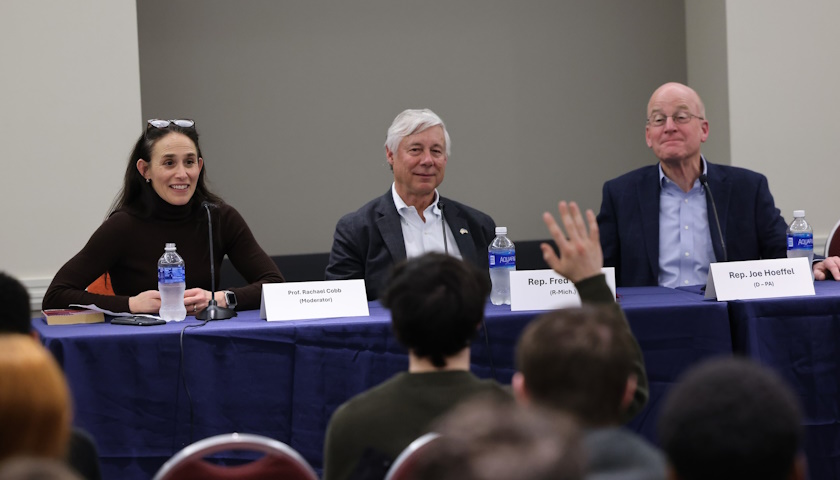A Lesson in Bipartisanship

Though they often differed politically throughout their careers, they both agreed on one thing: neither former US Representative Fred Upton (R-MI) nor Joe Hoeffel (D-PA) ever expected to be in Congress, they told a roomful of Suffolk students this February.
This year’s Congress to Campus program, hosted annually by Suffolk’s Political Science & Legal Studies Department, brought Upton and Hoeffel to the University to share their wisdom and experiences with students.
The two retired members of Congress visited classrooms, hosted forums, and answered questions ranging from career advice to specific policies. Despite their political differences, both had a strong connection to their communities.
“The real focus, in terms of public service, is to try to make your community or state a better place,” said Upton, who represented Michigan’s 6th district from 1987 to 2023.
In a time of partisanship and division, this year’s Congress to Campus series helped students gain a more personal and practical view of government.
The ability to interact directly with Upton and Hoeffel is unique, said political science major Grace Kane, who appreciated the opportunity to ask direct questions and learn from the representatives’ firsthand experiences.
“I felt I got to know them on a more personal level by asking one-on-one questions,” Kane said.

‘Government is made up of people’
English Professor Jason Tucker hosted Upton and Hoeffel during his English 221 Tactical Rhetoric: Advocacy & Activism, Propaganda & Power class. Each student researched and wrote questions about issues, voting history, activism, and other topics, applying the rhetorical tools and strategies discussed in Tucker’s class.
Tucker said Congress to Campus helps students feel closer to those in positions of power, and makes careers in politics and policymaking feel more attainable.
“The government is made up of people. And so now it seems a little more possible for you to participate in all of this,” Tucker said.
Hoeffel and Upton touched upon many issues that resonated with students. Hoeffel, who represented Pennsylvania’s 13th district from 1999 to 2005, shared how his own opposition to the Vietnam War inspired him to get involved with politics.
“I realized that to affect foreign policy, you’ve got to have some success in domestic politics, to gain an office or some influence,” said Hoeffel.

Hoeffel and Upton spoke of the value of bipartisanship, which both said was lacking in the current political climate.
For Kane, their words provided hope and inspiration.
“They lived two very different lives with very different political opinions. The fact that they were so cordial to each other and able to even agree on some things really shows true bipartisanship,” she said.
The key to reducing partisanship is “better voter education, better civics knowledge, and not giving up on the system,” Hoeffel said. “Staying home and not voting because you’re frustrated is not the answer.”
Upton, who visited a classroom each week while he was in elected office, said speaking to students of all ages was his way to both educate and inspire the next generation of change-makers. He remembered several students whom he visited while in office who later reached out to him as adults; many of them held office or worked for their communities.
Upton’s goal when speaking with students, he said, was to work with both sides of the aisle.
“Part of my message was, ‘I don’t care if you’re going to be a Republican or a Democrat or independent—be involved in your community,’” Upton said.
Media Contact
Greg Gatlin
Office of Public Affairs
617-573-8428
[email protected]



